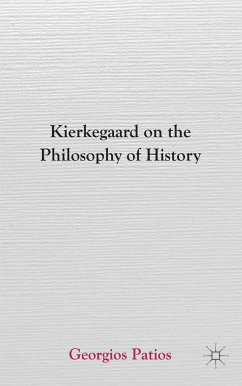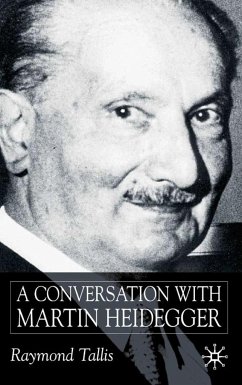
Kierkegaard on the Philosophy of History
Versandkostenfrei!
Versandfertig in 6-10 Tagen
38,99 €
inkl. MwSt.
Weitere Ausgaben:

PAYBACK Punkte
19 °P sammeln!
History doesn't have to mean only an effort to know the past. It can be instead, according to Kierkegaard, a willful and personal choice regarding the creation of the future. Kierkegaard offers us an amazing new approach to the problem of what is history and who makes it.












